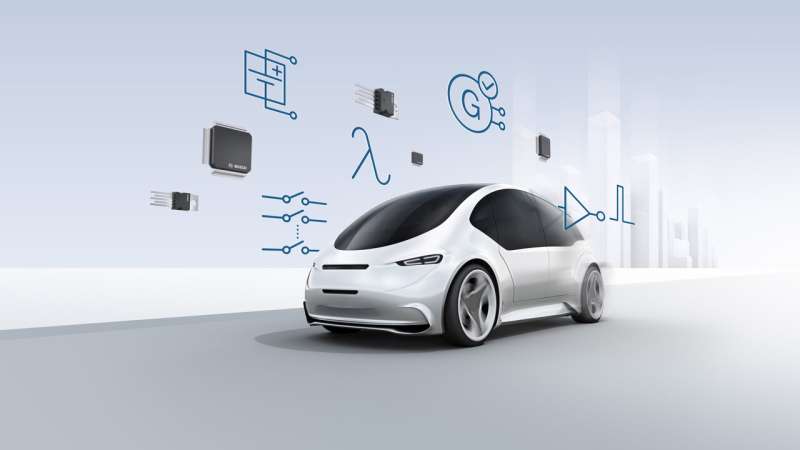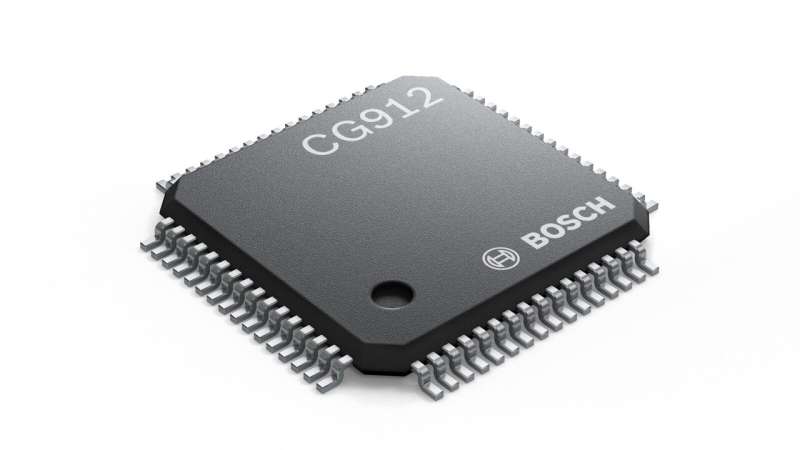Credit: Bosch
First responders and rescue teams are respected for doing all they can and based on what they know to help rescue victims of vehicle accidents as fast as possible.
One challenge, though, lies in the future tense: More EVs, many more on the road, raise the question of tools and safety systems to meet the needs of EVs. While car engineering changes, what about first responders who may need to change their techniques for handling EV crashes? What more do they need to know about risks associated with electric vehicles and their batteries?
Police and firefighters, for example, will confront relatively new scenarios where lithium ion batteries once ignited cannot be put out by a fire extinguisher. "The battery fires are susceptible to a self-destructive chain reaction known as thermal runaway, causing a feedback loop of rising temperatures," said Chester Dawson in Bloomberg Businessweek.
Or, is the future right now? Dawson's article stated that "With more than 760,000 electric and plug-in vehicles on the road in the U.S., according to the International Energy Agency, emergency responders with little past exposure to these cars are becoming more likely to encounter one at a crash scene."
Bosch's Automotive Electronics division team see an opportunity to shine, in providing solutions for EVs to avert dangerous consequences in road accidents.
Last year, Bosch discussed batteries at length in a posting and it was evident then that electric vehicle safety vis a vis high voltage batteries was on their minds.
"Pure electric or hybrid vehicles are equipped with special batteries that provide power to the electric motor at high voltages of 400 to 800 volts. For safety reasons, these high-voltage batteries, power electronics and their electrical wiring are designed to be highly robust. Nevertheless, the question of how secure a high-voltage battery is in the event of an accident is of vital concern to both the vehicle's occupants as well as any rescue workers. To prevent these persons from coming into contact with high voltage, while at the same time eliminating the risk of a vehicle fire, it must be possible to completely isolate the battery from the vehicle's electrical system."
Andrew Liszewski in Gizmodo summed up the special risks that electric vehicles pose in accidents. "When a gas-powered vehicle is involved in an accident, there's the risk of its fuel tank leaking and causing a volatile fire. There's still the risk of fire when an electric vehicle crashes, but more concerning is its electric battery, which is capable of delivering a powerful shock should wiring be damaged during the incident."
Credit: Bosch
One attention-getting approach: Small explosions.
Think of it as explosions that can save lives. "Bosch wants to blow up your electric car one small explosion at a time after you crash it," wrote Ronan Glon in Digital Trends. "This sounds violent—almost unnecessarily so—but it could help save your life if you're involved in an accident behind the wheel of an EV."
Bosch calls it "controlled explosions." A key component is a pyrotechnical safety switch system, or pyrofuse.
The company explained how "These systems 'blow out' whole sections of the cable connection to the high-voltage battery by means of miniature explosive charges, thus quickly and effectively shutting off the power circulation."
Andrew Liszewski in Gizmodo said the pyrofuses setting off these explosions are to drive "a physical wedge into the cables that connect an electric car's battery to all of its electronics and power train." No matter what effect the crash has on the electronics and wiring inside the EV, "there is no physical connection to the battery any longer, ostensibly removing the risk of electric shock."
Ed Garsten in Forbes: "The integrated circuit used to initiate the pyrofuse is called the CG912." This is an application-specific integrated circuits (ASIC). Bosch said that "The specific application in this case is automotive safety."
Meanwhile, advances such as those being made by Bosch can contribute to the safety measures being taken for EV safety.
"So far about 250,000 of the roughly 1.1 million firefighting personnel in the U.S. have undergone some form of EV training, according to estimates from the National Fire Protection Association," said Dawson.
More information: www.bosch-presse.de/pressporta … ve-lives-200641.html
© 2019 Science X Network
























